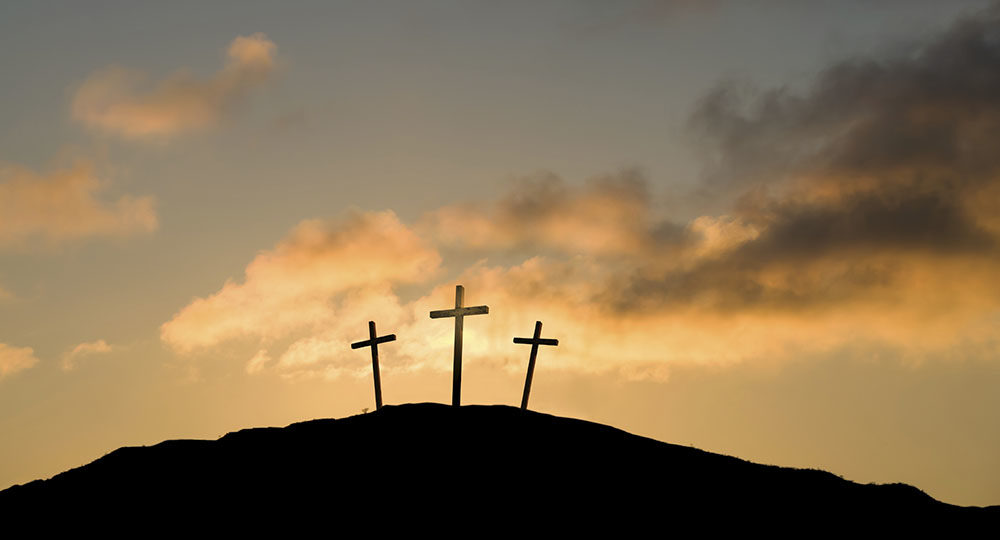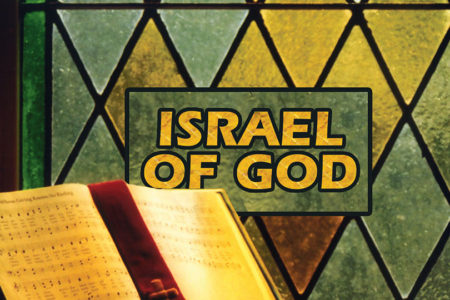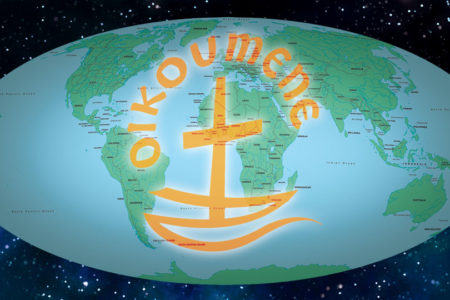The Seven Keys to History Part Five
Christ Crucified
We live in a world that is deeply influenced by evolution and supposed scientific theory. To have a rightly ordered life, we must understand (1) God is the Creator,(2) we are sinners with a responsibility to glorify God, (3) the earth is young, and (4) God created Israel to communicate His existence and essence.
These points bring us to the fifth key to history: Christ crucified. Scripture calls Jesus “the Lamb slain from the foundation of the world” (Rev. 13:8). From eternity past, God had a plan. Jesus is the central figure of human history. Three things we needed, Jesus provided.
(1) A Superior Revelation
God is in the process of revealing Himself to people who cannot see Him. We cannot know God apart from God making Himself known to us because we live in a physical world. He lives outside that world. So we needed a superior revelation.
At various times in history, God gave mankind responsibilities (stewardships by which it might fulfill its purpose of glorifying Him). Mankind failed. People did not glorify God. Instead, they “worshiped and served the creature rather than the Creator” (Rom. 1:25). Eventually, the world grew so evil God regretted He had made mankind and destroyed everyone but Noah and his family through a universal flood. But the government God established afterward, through the Noahic Covenant, also failed.
Later the Israelites failed to glorify God by living in obedience to the Law He gave them on Mount Sinai. So they went into captivity and were dispersed throughout the earth.
God had been revealing Himself in stages through what is called progressive revelation. Each stage manifested more of His person and plan so that people might glorify their Creator. Yet, despite additional information, they turned away from Him.
We needed still greater revelation. So God provided it:
God, who at various times and in various ways spoke in time past to the fathers by the prophets, has in these last days spoken to us by His Son, whom He has appointed heir of all things, through whom also He made the worlds;…being the brightness [radiance] of His glory and the express image of His person (Heb. 1:1–3).
Jesus came to flesh out the revelation of God—to be, among other things, the exact representation of God’s nature:
John 1:18. “No one has seen God at any time. The only begotten Son, who is in the bosom of the Father, He has declared Him.”
John 14:9. “Have I [Jesus] been with you so long, and yet you have not known Me…? He who has seen Me has seen the Father; so how can you say, ‘Show us the Father’?”
Colossians 1:15. “He is the image of the invisible God, the firstborn over all creation.”
Colossians 2:9. “For in Him dwells all the fullness of the Godhead bodily.”
Scripture says Jesus is the perfect balance of grace and truth. As such, He manifested God’s exact nature, speaking grace and truth in every situation: with a woman taken in adultery, with the Pharisees, with the disciples. Even when He appeared harsh, His balance, unlike ours, was perfect. Jesus provided a superior revelation.
(2) A Superior Sacrifice
People needed a better sacrifice for sin, as well. The Law was powerless to justify (make righteous) anyone who kept it. Jesus came “apart from the law”:
By the deeds of the law no flesh will be justified in His sight, for by the law is the knowledge of sin. But now the righteousness of God apart from the law is revealed, being witnessed by the Law and the Prophets, even the righteousness of God, through faith in Jesus Christ, to all and on all who believe….For all have sinned and fall short of the glory of God (Rom. 3:20–23).
Animal sacrifices could not impart righteousness or remove sin. “But in those sacrifices there is a reminder of sins every year. For it is not possible that the blood of bulls and goats could take away sins” (Heb. 10:3–4).
Godly Israelites understood that fact. They brought their sacrifices with a contrite heart and humble, repentant spirit; and they received God’s grace when He covered their sins temporarily. The majority, unfortunately, brought sacrifices with the wrong attitude and did not receive God’s forgiveness.
Either way, however, the note would eventually become due. God’s solution was to prepare a body for Jesus:
Therefore, when He came into the world, He said: “Sacrifice and offering You did not desire, but a body You have prepared for Me. In burnt offerings and sacrifices for sin You had no pleasure. Then I said, ‘Behold, I have come—in the volume of the book it is written of Me—to do Your will, O God’” (vv. 5–7).
Jesus came to offer a better sacrifice than the blood of bulls and goats. It was necessary that someone be qualified to die for the sins of the world. I wouldn’t be able to do it because I’m a sinner, which makes me an unfit sacrifice for a holy God. Neither is any other human being fit for the job for the same reason. Jesus was the only perfect One. Before the Incarnation, He was the eternal Son of God—the second Person of the Trinity. At the Incarnation, He became Jesus, the God-Man, as He took on Himself human flesh and emptied Himself of the glory that was His “before the world was” (Jn. 17:5).
The process is called the kenosis, from the Greek verb for “empty.” He left behind the external manifestations of who He was:
Being in the form of God, [He] did not consider it robbery to be equal with God, but made Himself of no reputation [emptied Himself], taking the form of a bondservant, and coming in the likeness of men. And being found in appearance as a man, He humbled Himself and became obedient to the point of death, even the death of the cross (Phil. 2:6–8).
Jesus humbled Himself to become human, so He could die for us. Our redemption comes through Him:
“[Christ] committed no sin, nor was deceit found in His mouth”; who, when He was reviled, did not revile in return; when He suffered, He did not threaten, but committed Himself to Him who judges righteously; who Himself bore our sins in His own body on the tree, that we, having died to sins, might live for righteousness—by whose stripes you were healed (1 Pet. 2:22–24).
He offered a superior sacrifice: But Christ came as High Priest of the good things to come, with the greater and more perfect tabernacle not made with hands, that is, not of this creation. Not with the blood of goats and calves, but with His own blood He entered the Most Holy Place once for all, having obtained eternal redemption (Heb. 9:11–12).
Jesus’ sacrifice was not confined to Earth. He went into the heavens with it:
For Christ has not entered the holy places made with hands, which are copies of the true, but into heaven itself, now to appear in the presence of God for us; not that He should offer Himself often, as the high priest enters the Most Holy Place every year with blood of another (vv. 24–25).
It was a better sacrifice offered with better blood in a better Temple, which is why it was made “once for all” and is sufficient to pay for the sins of the entire world. But people must appropriate that sacrifice individually by placing their faith in Jesus alone.
(3) A Superior Leader
Though the Bible is filled with people of great faith, Jesus transcends them all. He is the “author and finisher [perfecter] of our faith” (12:2). Moses, Joshua, and David were all illustrious leaders. But Jesus is greater than them all. One day, Jesus will sit on the throne of Israel and rule the world.
In Revelation 5, He stands as the Lamb before the throne, while the apostle John weeps, thinking there is no one to open an important scroll:
But one of the elders said to me, “Do not weep. Behold, the Lion of the tribe of Judah, the Root of David, has prevailed to open the scroll and to loose its seven seals.” And I looked, and behold, in the midst of the throne and of the four living creatures, and in the midst of the elders, stood a Lamb as though it had been slain, having seven horns and seven eyes, which are the seven Spirits of God sent out into all the earth (vv. 5–6).
The story of Revelation is the story of the Lamb coming to the Father, taking the scroll from the Father’s hand, and opening it. In so doing, He unleashes judgment on the earth.
This same Jesus will return to Earth, and “out of His mouth goes a sharp sword, that with it He should strike the nations” (19:15). He is the Joshua. He is the Yeshua:
He Himself will rule [the nations] with a rod of iron. He Himself treads the winepress of the fierceness and wrath of Almighty God. And He has on His robe and on His thigh a name written: KING OF KINGS AND LORD OF LORDS (vv. 15–16).
Jesus is Prophet, Priest, and King. He is the Revealer (Prophet) par excellence. He is the Substitute, the One who offers Himself and then continues to function as High Priest. He is the King who one day will return. When you put these three offices together, you have the Messiah—the Anointed One who brings all things to fruition in God’s ultimate program.
It is no wonder we worship Him. It is no wonder the world revolves around Him and celebrates His birth. And it is no wonder that, one day, every knee shall bow and every tongue confess that Jesus Christ is Lord, to the glory of God the Father (Phil. 2:10–11).
Adapted in part from the “Seven Cs of History” presented by Answers in Genesis.






